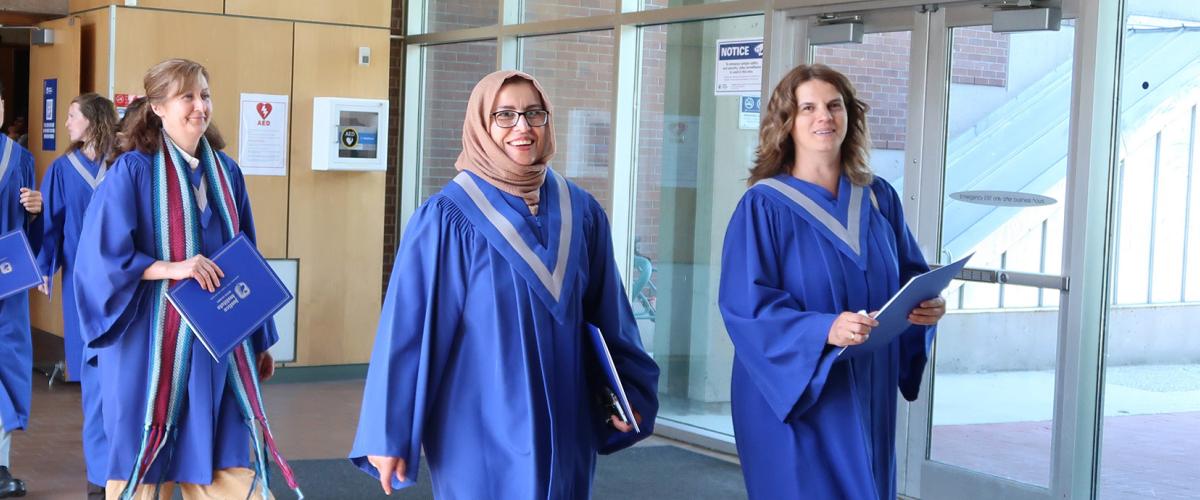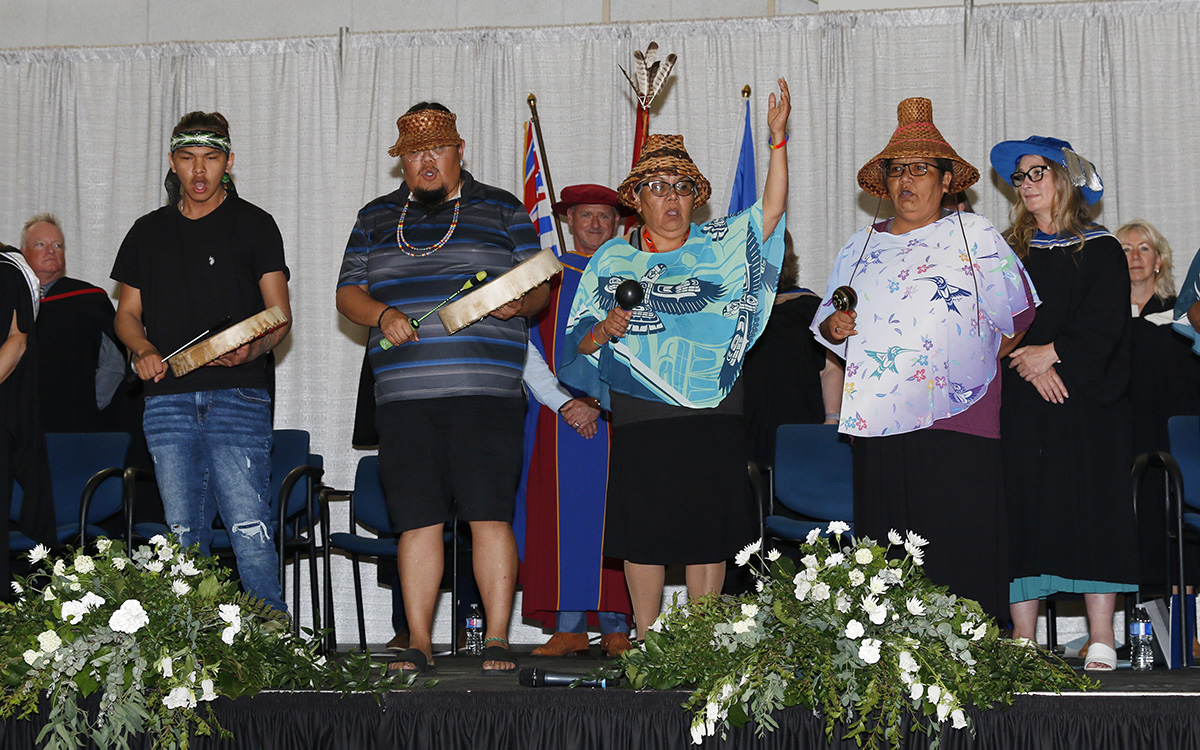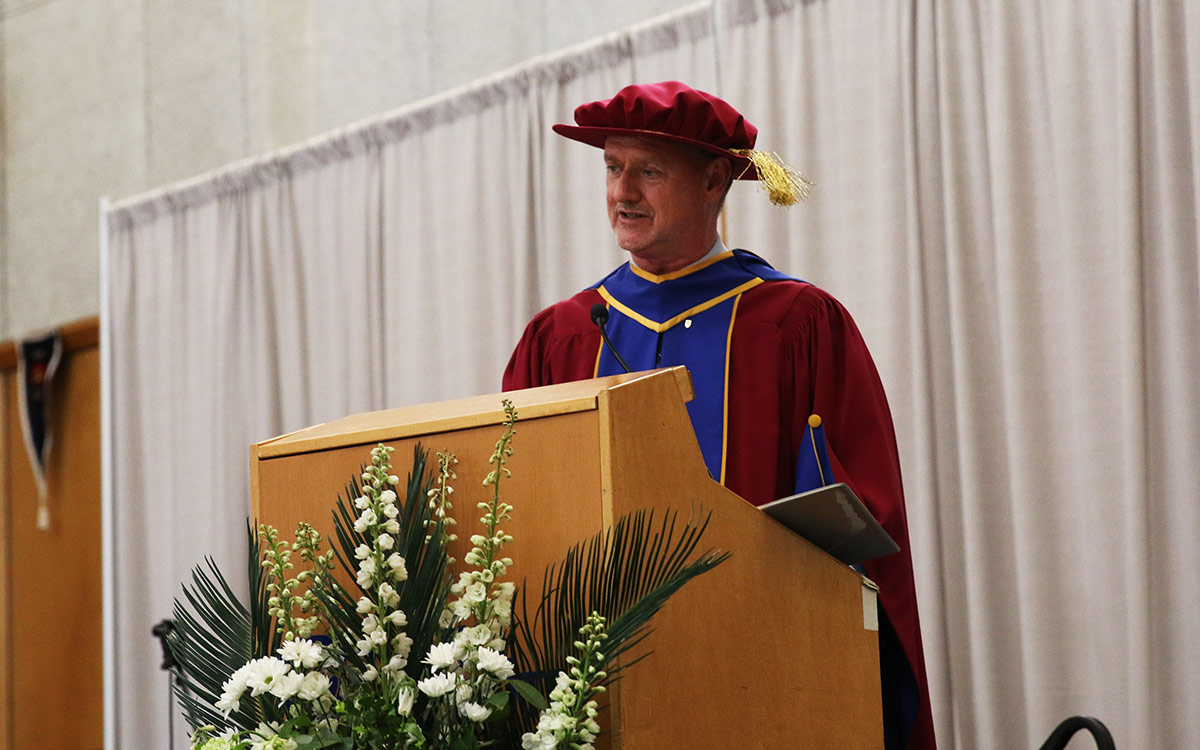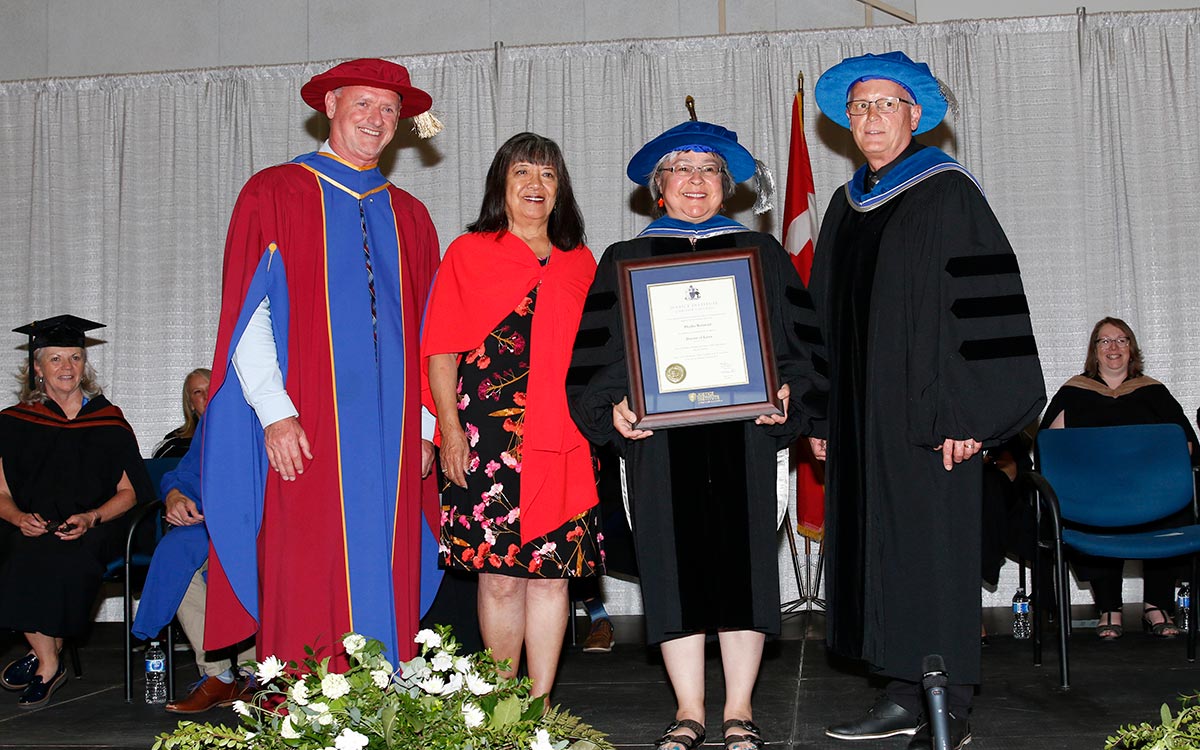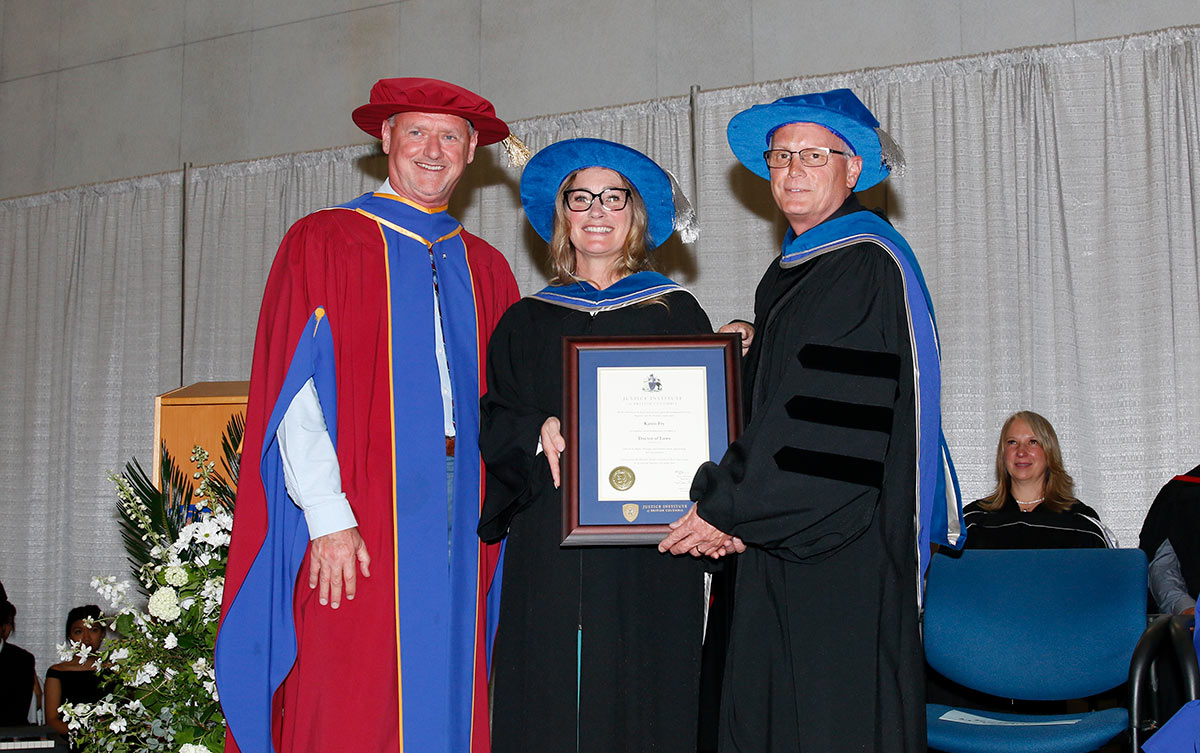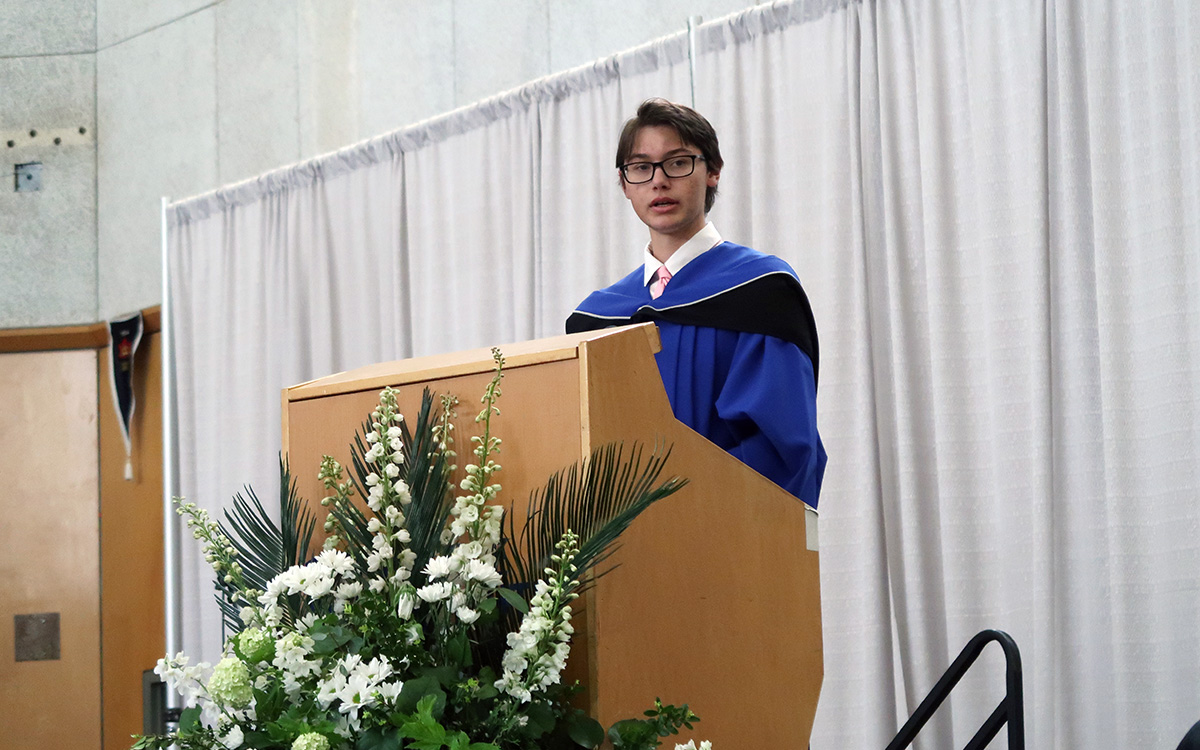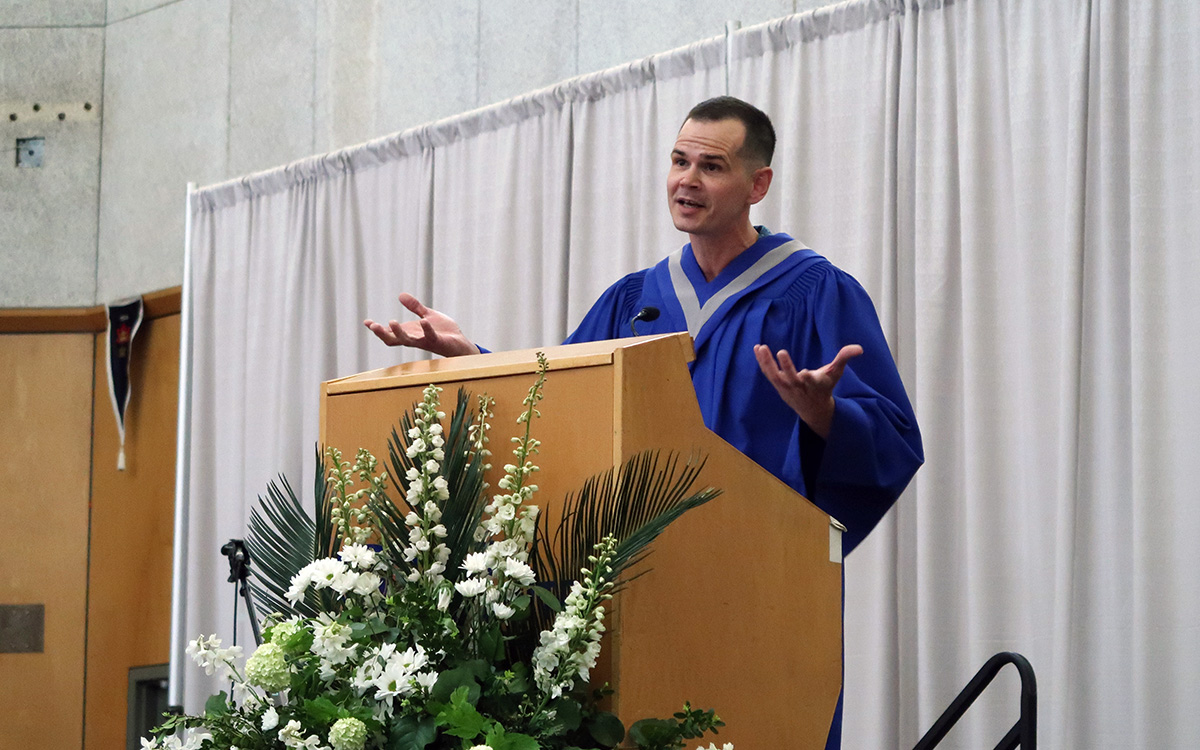Approximately 680 graduates, future justice and public safety leaders, recognized
The Justice Institute of British Columbia (JIBC) celebrated the achievements of approximately 680 graduates and conferred honorary degrees on Orange Shirt Day founder Phyllis Webstad and Vancouver Fire Chief Karen Fry at its convocation ceremonies held on June 8 at its New Westminster campus.
“From climate change to the opioid and mental health crises, to the ongoing impacts of Canada’s residential schools and systemic anti-Indigenous racism, you will be on the frontlines, responding to complex and ever-changing challenges,” Dr. Michel Tarko, JIBC President and CEO, told the graduating class. “Every day, you will encounter people during their most vulnerable moments. And you will make a difference.”
Phyllis Webstad, a residential school Survivor and one of two honorary degree recipients, was recognized for her profound contributions to public awareness and understanding of the residential school system and the advancement of Truth and Reconciliation.
Webstad spoke to graduates at the afternoon ceremony, describing the traumatic impacts of the residential school system on her own family and others, and the need to recognize this as part of Canadian history, not simply as an Indigenous concern.
“This undertaking to become properly educated on this history will make you feel uncomfortable, and it might make you upset, but it must be remembered that Indigenous people are not the only peoples whose responsibility it is to heal the hurt we feel,” she said. “It is the responsibility of our Canadian brothers and sisters to shoulder some of our pain, and to help us create a safer environment where healing from the effects of colonialism is encouraged.
“What you learn and what you choose to teach about us will make a difference in Canadian society. Truly opening your minds and your hearts to learning about the effects of colonialism is the only way forward.”
Karen Fry, chief and general manager of Vancouver Fire Rescue, the largest fire department led by a woman in Canada, was conferred an honorary degree in the morning ceremony. She was recognized for her contributions to fire safety, her advocacy on behalf of fire service professionals and the public, and her service as an exemplary leader and role model for firefighters everywhere.
Fry told the graduates to keep in mind the need for empathy and compassion when working on the front lines. “We must remember that behind every emergency call, there is a person in distress, and it is our duty to treat each individual with respect, dignity, and kindness. We must be the calm presence in the storm, offering reassurance and support to those who need it most.”
She also stressed the importance of taking care of themselves and finding balance. “The burden of being a public servant, a first responder, it can take a toll on the strongest of us, and that is why it is imperative that you find that balance. That you take the time out to recharge, to be kind to yourself, to talk about how you are feeling and the pressure that this takes, to know that you are not alone,” she said. “Because, though you are a hero, your cape will get heavy. Remember, you are not invincible, but you can be resilient.”
James Sieben, graduating with a Bachelor of Emergency and Security Management Studies, spoke on behalf of the graduating class at the morning ceremony. He said among his most valuable experiences at JIBC was learning from classmates who came from varied backgrounds.
“After all, in what other school can a 22-year-old queer kid work alongside a 50-year-old military veteran and volunteer firefighter on a group project on business continuity?”
While he is concerned about the future with the worsening climate crisis and the emergencies that accompany it, Sieben said, “I cannot help but feel positive and hopeful to see so many of us working to address the disparities and difficulties others experience in the face of danger.”
Mark van Eijk, a paramedic graduating with an Advanced Diploma in Advanced Care Paramedicine, spoke on behalf of graduates at the afternoon ceremony and commented on the challenges he and his classmates faced.
“Paramedic education is challenging at baseline. Completing it in the midst of the COVID pandemic, some of the worst years of the ongoing opioid overdose epidemic, and the heat dome of 2021 required an unusual level of patience, resilience, and dedication,” he said.
But among the lessons van Eijk learned in dealing with those challenges – including taking care of themselves so they’re best able to care for others – is the need for resilience and adaptability.
“The people we serve will count on us to roll with the punches and to be adaptable, because we already were hoping for the best but expecting the worst. Ultimately, you may not always be able to make the perfect decision, you just need to make good decisions.”
